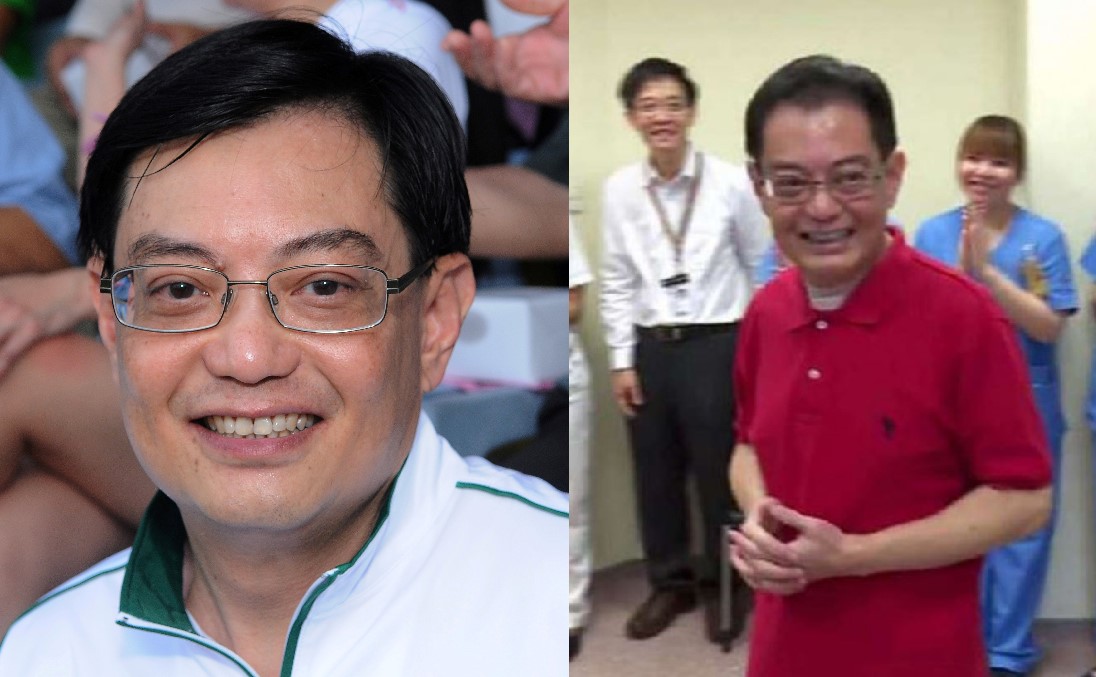Deputy Prime Minister Heng Swee Keat reflected on the stroke he suffered four years ago and how his colleagues acted quickly to get him the help he needed, in a Facebook post published on Thursday (29 Oct).
On 12 May 2016, Mr Heng collapsed from a stroke during a Cabinet meeting. Dr Janil Puthucheary, a pediatrician by training, began resuscitation efforts while waiting for the ambulance. Foreign Minister Vivian Balakrishnan and Defence Minister Ng Eng Hen, who are an eye surgeon and a cancer surgeon respectively, also tended to Mr Heng when he collapsed.
The team from the Singapore Civil Defence Force responded within seven minutes of the 995 call and Mr Heng was taken to Tan Tock Seng Hospital, where he underwent neurosurgery to relieve pressure in his brain. He was transferred to the intensive care unit after the surgery.
Mr Heng was discharged from hospital after six weeks, on 25 June 2016. The Prime Minister’s Office said that Mr Heng “has made an excellent recovery” as he remained on medical leave over the next few weeks. He resumed his duties as MP and Finance Minister less than a month later, on 22 August 2016.
Members of the medical community registered surprise at the speed with which Mr Heng recovered from his stroke given the bad shape he was in and credited the immediate attention and care he received as a factor that boosted his excellent recovery.
In a social media post commemorating World Stroke Day on Thursday, Mr Heng reflected on the stroke he suffered in 2016 and how it impacted him. He wrote: “More than four years ago, I had a stroke due to a ruptured aneurysm. It caused great anxiety to my family.
“I greatly appreciate the support of so many well-wishers, and the care of the dedicated staff at Tan Tock Seng Hospital (TTSH) and National Neuroscience Institute. After some months, I am grateful to have made a full recovery.”
Sharing that he is intimately aware of the “pain and disruption a stroke can cause,” Mr Heng wrote about how important early action is. Thanking his colleagues in the cabinet for taking quick action when he collapsed, Mr Heng wrote:
“Having gone through this, I understand the pain and disruption a stroke can cause — for patients, their families and people around them. A healthy lifestyle can lower the risk of a stroke. But remember, low risk does not mean no risk — it can happen even if we are healthy.
“Should a stroke happen, early action can make a big difference — and I am grateful that my colleagues stepped in to help me as soon as it happened.”
Tan Tock Seng Hospital and the National Neuroscience Institute wished Mr Heng good health in the comments section of his post. The Government’s stroke awareness campaign, Spot Stroke, also thanked Mr Heng for drawing more attention to its work.






Despite his stroke, Heng was seen as the leading contender to be the next prime minister of Singapore when current PM Lee Hsien Loong retires. His presumptive position as Mr Lee’s successor appeared to become cemented when he was made Deputy Prime Minister and first assistant secretary-general of the ruling People’s Action Party (PAP) in recent years.
Shortly after Mr Heng was given one of the top roles in the PAP’s central executive committee in November 2018, ex-Prime Minister Goh Chok Tong said that the party’s decision to back Heng may have been made “about six to nine months earlier” had Mr Heng not suffered a stroke in 2016.



